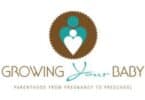For years, middle children have been thought of as the “forgotten” ones, lost between the responsible firstborns and the attention-seeking youngest siblings. But a new large-scale study published in the Proceedings of the National Academy of Sciences is flipping that stereotype on its head. It turns out, middle-born kids may actually come out on top when it comes to personality traits linked to cooperation, fairness, and social adaptability.
The Surprising Strengths of Middle-Borns
Michael Ashton of Brock University and Kibeom Lee of the University of Calgary conducted a fresh analysis of how birth order and family size influence personality. Using data from over 785,000 participants through an online personality assessment, they found that middle children consistently scored the highest in Honesty-Humility and Agreeableness—traits associated with being fair, kind, and cooperative.
So, what makes middle children stand out? Growing up sandwiched between older and younger siblings forces them to negotiate, compromise, and play peacemaker. With less pressure to be the high-achieving eldest and fewer chances to be the pampered youngest, middle-borns learn to carve out their own niche, often becoming some of the most well-rounded individuals in the family.
Big Families, Big Benefits
Another key takeaway from the study is that individuals from larger families tend to exhibit stronger social skills. The more siblings in a household, the higher the chances of developing a cooperative and adaptable personality. Middle-borns naturally come from families with at least three children, meaning they reap the most benefits from these dynamics.
In contrast, only children ranked the lowest in Honesty-Humility and Agreeableness but scored the highest in Openness to Experience—a trait linked to creativity and intellectual curiosity. While only children may receive more undivided parental attention, they also miss out on the constant sibling interactions that teach essential social skills.
The Middle Child Advantage
Despite the long-standing jokes about middle children being overlooked, this research highlights their strengths. Middle-borns aren’t just surviving between their siblings—they’re thriving. Their ability to cooperate, mediate, and get along with others makes them natural leaders and team players in adulthood.
Of course, birth order isn’t destiny. Many other factors, including parenting styles, genetics, and personal experiences, shape personality. However, this study offers strong evidence that being a middle child isn’t a disadvantage—it might just be the secret ingredient to developing exceptional social and emotional intelligence.
While these findings are based on data from primarily English-speaking participants in Western countries, future research aims to explore whether similar patterns hold across different cultures. Given the strong role family dynamics play in shaping personality, it’s likely that middle children around the world share these same hidden strengths.
Related Articles:





